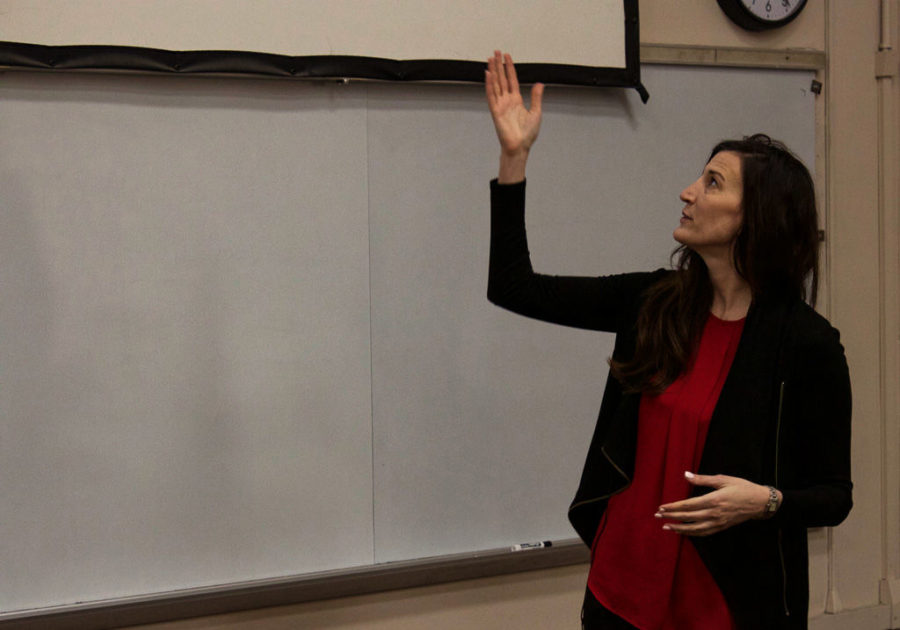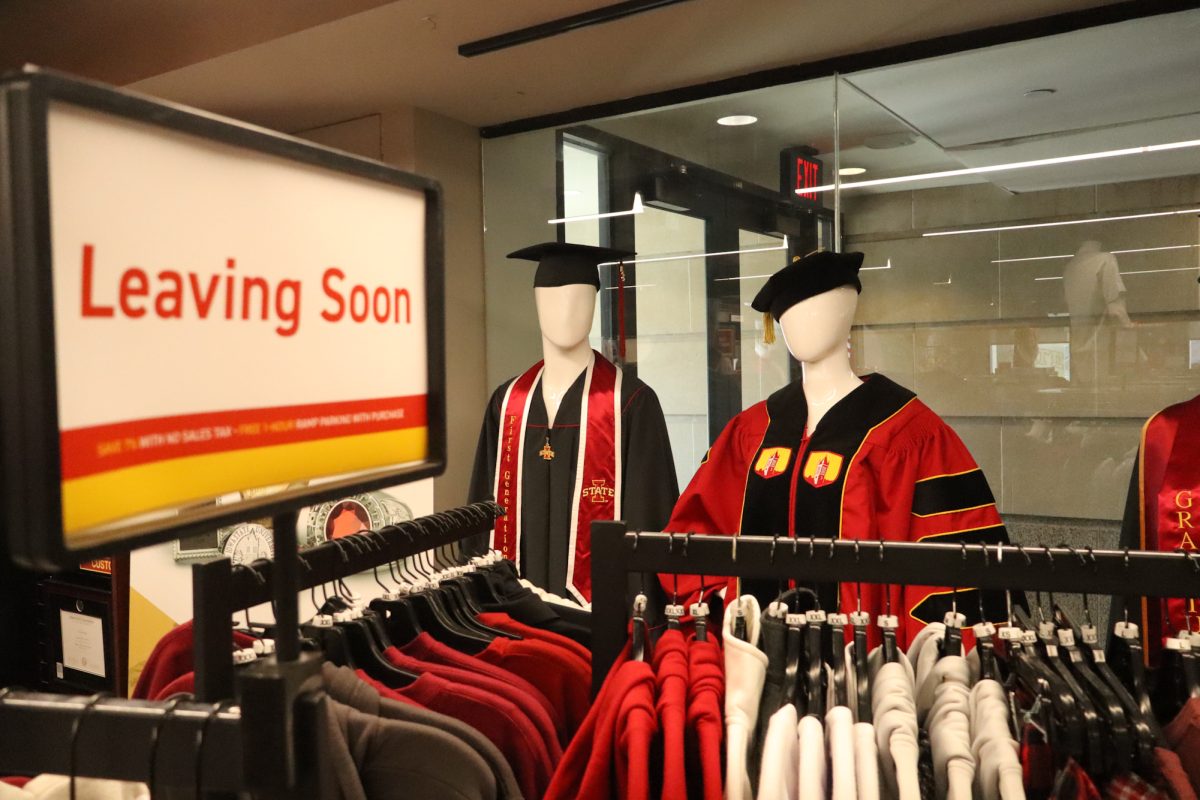Full Harvest: The role of businesses in food waste
By Sarah Hays, sarah.hays@iowastatedaily.net
Founder of ‘Full Harvest’ Christine Moseley shows the crowd a video of her and her team harvesting romaine lettuce. Moseley tells the audience that most romaine lettuce is left to waste in fields simply because it is not in perfect condition.
March 28, 2018
Christine Moseley always knew she wanted to start a business to change the world.
When Moseley saw how much produce was being left on farms because of its appearance, it amazed her how big of an issue food waste was and, at the time, how little attention it was getting.
So in 2016, Moseley founded Full Harvest, the first business to business marketplace for ugly and surplus produce.
The company works directly with businesses to sell unwanted produce so that instead of being put in landfills it can be juiced, chopped or processed into other products.
Two years later, Full Harvest is now working with some of the country’s largest businesses to reduce food waste. Moseley talked about her company in her lecture “Food Waste” that is part of the 2017-18 Helen LeBaron Hilton Endowed Chair Lecture Series.
Moseley said that one of the main reasons she started the company can be seen through the waste in romaine lettuce farming.
With romaine, usually only the hearts of the plant are harvested. This leaves acres of unused, but still edible, leaves on the farm.
“Sixty-five percent of all romaine that is harvested is left on the field,” Moseley said.
But this issue is bigger than lettuce. Fifteen to 20 percent of crops don’t even leave the field. In the United States alone, $20 billion in imperfect produce is wasted per year.
So far, the company has harvested over three million pounds of flawed produce.
Harvesting these crops also reduces water waste. With all the water they have saved from harvesting these excess crops, they could give one million people drinking water for a year.
The company harvests more than 27 unique crops, with a focus on high waste products such as kale, chard and romaine. In the future, they are looking at ways to improve harvesting methods in products like nuts, wine and herbs.
Not only does this help reduce waste, but it also is a cheaper option for companies to buy produce.
“Our buyers save money because they are buying ugly produce rather than pretty produce,” Moseley said.
Full Harvest works with a number of national companies, but many choose not to publicize the collaboration.
Moseley said it is up to the company to decide what they do with the information, but as time goes on, more are willing to use it as a marketing tactic.
“It’s definitely something that is getting easier and easier and more people want,” Moseley said.
The problem of food waste has risen because of the growing notion that consumers need to have perfect looking produce.
“Consumers have gotten pickier and pickier,” Moseley said.
Moseley said that since big sellers are looking for pretty and flawless produce, farmers have started focusing on their most perfect looking crops and overlooking the rest.
“They don’t care about it if it doesn’t mean more sales to Walmart and Costco,” Moseley said.
One in seven people don’t know where their next meal is coming from, Moseley said. That’s why she recommends always taking your food home when you eat out because from there you can either eat it later, give it to someone else who will eat it or compost it.
“We say it’s the world’s dumbest problem, people are going hungry, but we are wasting so much,” Moseley said.







